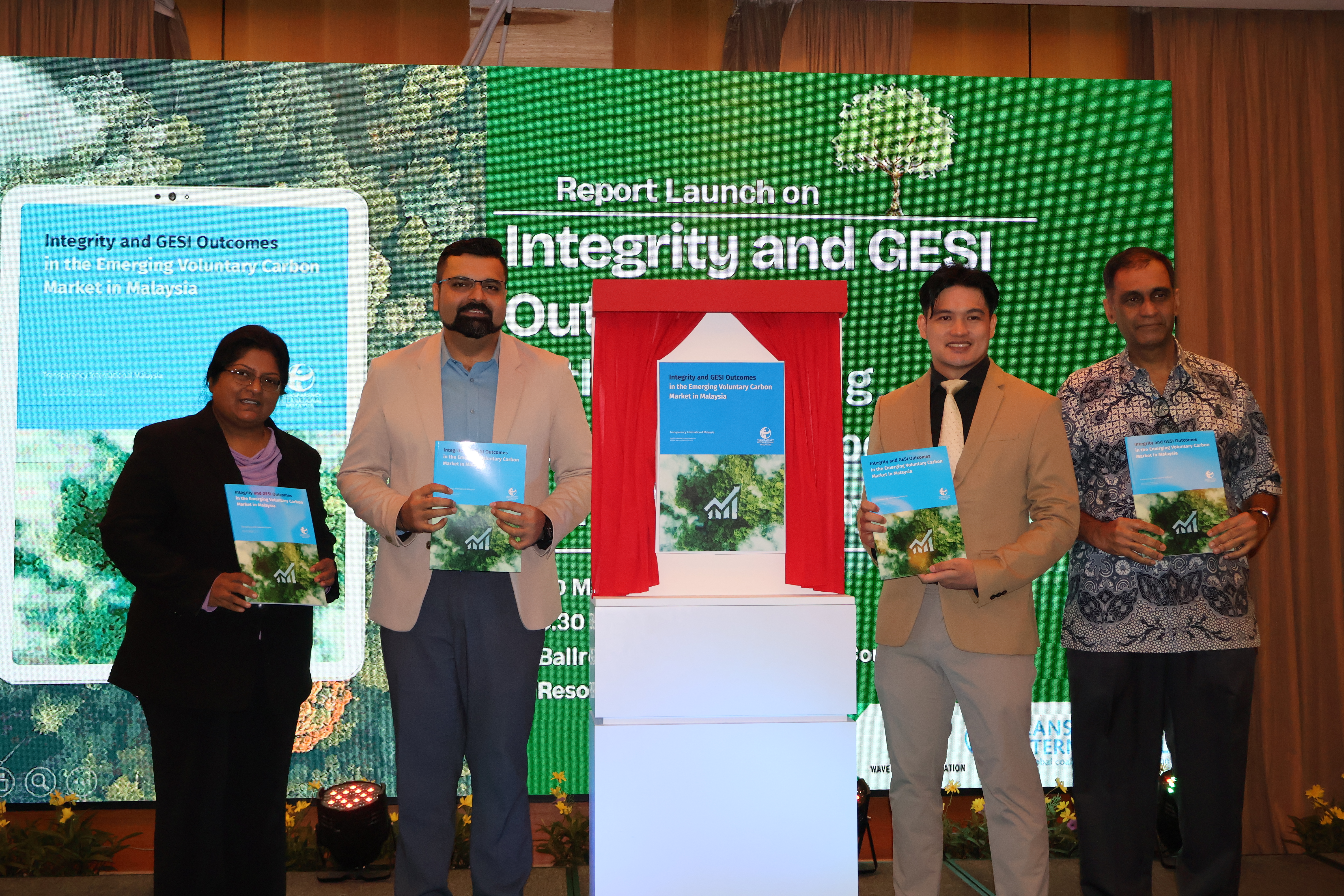
Transparency International Malaysia (TI-Malaysia) today launched its landmark report, “Integrity and Gender Equality and Social Inclusion (GESI) Outcomes in the Emerging Voluntary Carbon Market in Malaysia,” delivering a clear call to action: if Malaysia wants to lead in climate finance, it must build a carbon market that is not only environmentally sound but grounded in integrity, accountability, and inclusivity.
The report, developed under TI-Malaysia’s Climate Governance Integrity Programme with support from the Waverley Street Foundation, highlights both the opportunities and governance risks facing Malaysia’s voluntary carbon market (VCM), which has gained momentum since the launch of the Bursa Carbon Exchange (BCX) in 2022. While the market holds strong potential, the report warns of critical gaps in transparency, oversight, grievance mechanisms, and the meaningful inclusion of women, Indigenous peoples, and marginalised groups.
“This is not just about publishing another report — it’s about challenging ourselves, as a country, to get ahead of the risks and deliver a carbon market that stands up to international scrutiny and delivers real impact,” said Raymon Ram, delivering the opening remarks at the launch event.
“Malaysia has an opportunity to be a regional leader, but we must make integrity and inclusion non-negotiable foundations — not afterthoughts, not tick-the-box exercises.”
Key report highlights include:
- Limited public access to environmental and social impact assessments, revenue-sharing
models, and beneficial ownership data.
- Absence of national grievance mechanisms, leaving affected communities reliant on foreign or project-developer-led systems.
- Weak institutional integration of Gender Equality and Social Inclusion (GESI) principles, risking the exclusion of those most vulnerable to climate change.
- Urgent need for long-term, locally driven capacity-building to support Indigenous- and women-led climate projects.
The report draws from international best practices, detailed case studies from Malaysia’s nature- and technology-based carbon projects, and national stakeholder consultations conducted in 2024–2025.
TI-Malaysia’s recommendations call for:
- Robust anti-corruption safeguards, including stronger due diligence, clearer conflict-of-interest rules, and effective corporate whistleblower mechanisms.
- Greater transparency and independent oversight by civil society, media, and local communities.
- A shift from box-checking compliance to people-centred approaches that prioritise social and environmental integrity over transaction volume.
“Integrity is the backbone of climate credibility,” added Raymon Ram. “Without it, we risk building markets that enrich a few but fail the many. We urge policymakers, businesses, civil society, and communities to take these findings forward and work together to design a Malaysian carbon market that delivers not just promises, but proof.”
The launch event, held at Tropicana Golf & Country Resort, Petaling Jaya, brought together policymakers, private sector leaders, civil society organisations, academics, and international partners, laying the groundwork for future collaboration and reform.
Media Contacts:
Transparency International Malaysia
Email: ti-malaysia@transparency.org.my
Website: www.transparency.org.my







